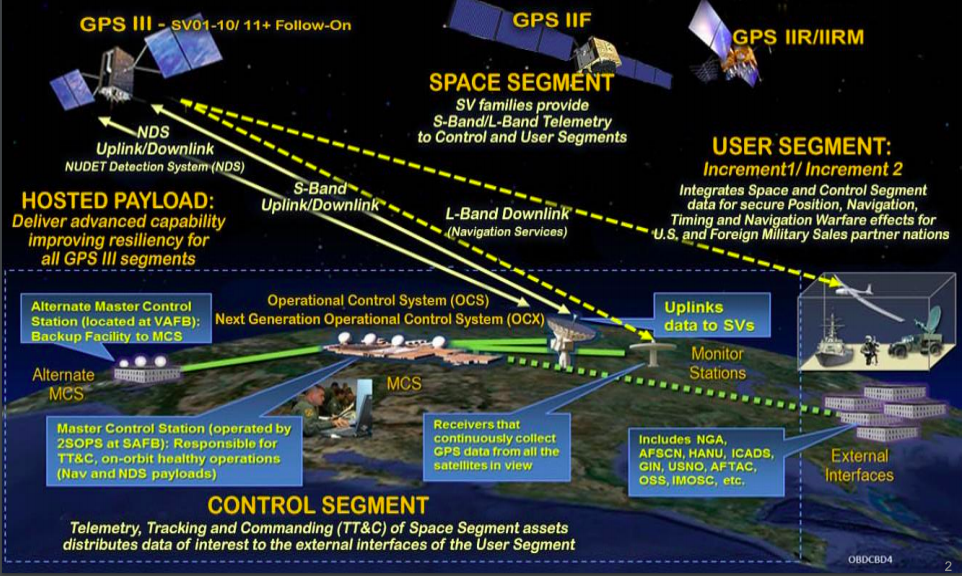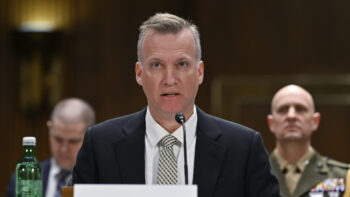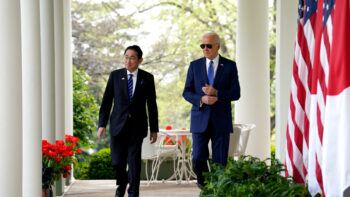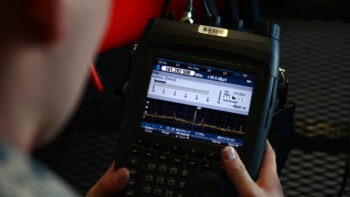
UPDATED: Trimble responds to Ligado response, with details.
WASHINGTON: Trimble, one of the the GPS manufacturers caught up in DoD’s battle to block the FCC’s approval of Ligado’s planned 5G mobile communications network, is accusing Ligado of misrepresentation.
“Ligado has made inaccurate statements about Trimble’s agreement with Ligado, and these inaccurate statements are reflected in the FCC’s decision,” a spokesperson told Breaking D in an email today.
Ligado has swung back, arguing that Trimble has simply changed its mind in the wake of objections by some of its major customers — which not surprisingly include DoD and the Federal Aviation Administration.
“Trimble’s recent press statement obviously indicates they are simply heeding the call from a very large customer and, in the process, contradicting their own statements on the record that Trimble supports Ligado’s application,” Ligado said in a statement provided to Breaking D.
UPDATE BEGINS:
A Trimble spokesperson contacted Breaking D on Sunday, May 10 to provide the following response to Ligado’s statement:
“It is unfortunate that Ligado has elected to double down on its inaccurate statements. From Trimble’s standpoint, the major interference problems associated with Ligado’s proposals has always been its proposed use of the 1526-1536 band for base station operations. These operations are very troublesome because base station networks are designed to provide ubiquitous transmissions within a geographic area, so any interfering signals will affect GPS receivers throughout the area. Trimble’s agreement with Ligado on its face, and as described in the transmittal letter to the FCC signed by Ligado CEO Doug Smith, clearly acknowledges that Trimble did not agree to support Ligado’s proposal to use the 1526-1536 band. Trimble has never supported this use, and does not support it now. For Ligado to suggest otherwise, or to suggest that Trimble has changed its position, is demonstrably false.” UPDATE ENDS.
Breaking D had reached out to Trimble, and a number of other firms Ligado says it has reached agreements with about its plans, asking for their positions on whether or not Ligado’s plans would impact their products. Ligado wants to convert L-band spectrum granted to them for satellite use to a terrestrially based 5G mobile communications network.
As Breaking D readers know, one of the key issues in the Ligado dispute between DoD and the Federal Communications Commission is whether the power level of the L-band signals Ligado plans to use in its cell towers will jam GPS satellite receivers, including many used by US military forces and made by companies like Trimble.
DoD head of Research and Engineering Mike Griffin made the argument forcefully in testimony to the Senate Armed Services Committee on May 6, that Ligado’s 9.8 dbW broadcast power — an energy level equivalent to that emitted by a 10 watt lightbulb — will cause problems even for some jam-resistant receivers.

Trimble receivers
Ligado, however, says there will be little or no negative interference. It also has told the FCC it has reached what it calls “co-existence agreements” with major receiver manufacturers like Trimble as an attestation to that fact.
In a May 6 letter to the SASC, obtained by Breaking D, Ligado said “the power level the GPS companies agreed to was 1600 Watts; the FCC approved 10 Watts.”
Ligado also notes in its letter to SASC that “these concessions, and the involvement of the GPS industry in developing them, were critical to the FCC’s decision to approve Ligado’s application.” (In addition, the company expressed concern that it was not invited to testify at the SASC hearing.)
Griffin, however, during his SASC testimony suggested that Ligado was playing fast and loose with the facts about its assertions that major GPS receiver vendors had signed off on its plans and supported the FCC’s April 22 decision to approve them.
“Ligado says that they got that sign off. But … those companies are on the list of those that [DoD CIO] Dana Deasy was just providing that have objected to to this order. So none of us, of course, have been in the deliberations between these various companies and Ligado, but I think it says something when they have, together and separately, objected to this decision.”
Ligado mentioned Trimble as one of the receiver firms with whom it reached an agreement in an April 12 letter to the FCC from the company’s legal counsel. But Trimble — one of the firms signing the objection letter mentioned by Griffin and Deasy — says that it has not made such an agreement.
“Trimble does not have, and never had, a ‘coexistence agreement’ with Ligado,” the spokesperson said. The spokesperson elaborated:
“In 2016, Trimble entered into a limited settlement agreement with Ligado to resolve a lawsuit brought against Trimble by Ligado’s predecessor, LightSquared. As part of the settlement agreement, Trimble and Ligado agreed to support a specific package of proposals to the FCC for a period of two years. However, even under that settlement agreement, Trimble had the right to oppose Ligado’s proposed base station operations in spectrum adjacent to GPS, and Ligado’s proposed alternatives to the 1dB standard for determining harmful interference GPS.
That was Trimble’s position then and it remains Trimble’s position today. In any case, the relevant provisions of the agreement have expired, and Trimble supports efforts to overturn the FCC decision. A broad range of industries from airlines and agriculture to defense are calling for the FCC to rescind its decision. This is in addition to the Department of Defense, Department of Transportation and seven other key Federal agencies that have stated the decision puts their missions in jeopardy.”
Trimble was one of 71 private sector companies and associations objecting to the FCC approval of Ligado’s plan in a letter sent to the SASC on May 6. Companies signing the letter, provided to reporters by SASC Chairman James Inhofe’s office, ranged from key DoD providers of satellite services L3Harris and Iridium, to airline companies Delta and Southwest, to major shipping firms FedEx and UPS.
Ligado countered that:
“As the documents in the public record show and consistent with the terms of a ‘Co-operation Agreement’ between Trimble and Ligado, a senior Trimble executive and lawyer participated with Ligado in meetings with government officials at the FCC and the DOT during which Trimble indicated that it ‘supports grant of the Applications.’ So, while ‘relevant provisions’ of our Agreement may have expired, Trimble’s obligation not to mislead federal agencies still stands.”
And in a May 20, 2016 letter to the FCC, obtained by Breaking D, Trimble legal counsel Russell Fox, from the law firm Minz Levin, stated that Trimble VP James Kirkland had expressed support for Ligado’s application.
In its May 6 letter, Ligado mentioned it also has agreements with Deere, Garmin, NovAtel and TopCon. None of those companies signed the May 6 objection letter to the SASC.
In an email today to Breaking D from Neil Gerein, director of marketing for the Autonomy & Positioning division of Hexagon, NovAtel’s Swedish parent firm, avoided directly addressing the Ligado case.
He simply pointed out that, in light of expected spectrum allocation changes, the firm “has been working to make our receivers more resilient.”
However, he added that “the coming spectrum change may significantly affect more than a half million units of older generation NovAtel receivers that were not designed to handle this new spectrum challenge.”
A 2018 letter to the FCC by Hexagon President for Positioning Intelligence Michael Ritter says that the firm decided to improve the resiliency of NovAtel’s receivers were, in part, as a the result of an agreement reached with Ligado reached in 2016. The letter, obtained by Breaking D, further noted that Hexagon’s own analysis had determined that increased jam resistance would be required in future anyway, regardless of Ligado’s plans.
Deere, Garmin and TopCon did not reply to our emails seeking comment.
Australia unveils ‘historic’ defense boost to 2.4% of GDP in decade, but critics say too little, too late
Part of the shakeup includes tens of billions for nuclear-powered subs, and halting the pricey procurement of an additional F-35 fighter jet squadron.



























